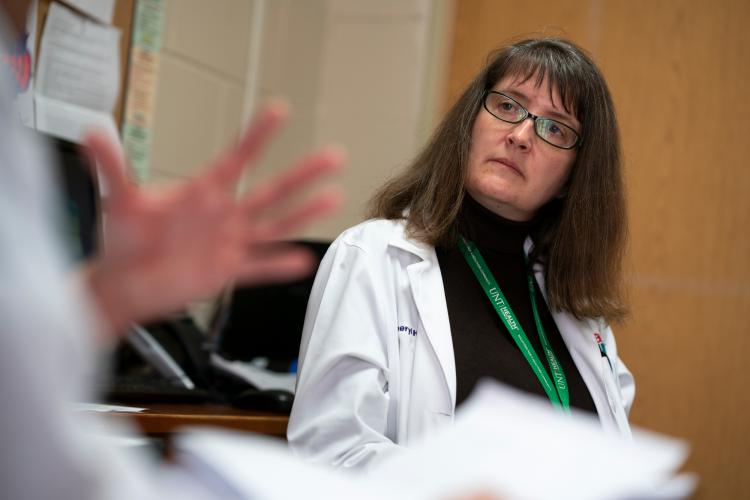
The COVID-19 pandemic has been a tough time for people of all walks of life.
It’s not just our physical health that has been impacted. Fear of illness, worries about taking care of our families, loss of income, and a host of other issues that weren’t even on our radar a year ago have all become factors that have complicated our lives and ratcheted up our stress levels. What can we do to manage these feelings? JPS Health Network has a team of doctors, nurses and other Behavioral Health caregivers at the ready to help whenever they’re needed, 24 hours a day, 365 days a year.
“I’d have to say that we’ve been seeing a lot more need from patients since the beginning of COVID,” said Dr. Cheryl Hurd, Director of the Psychology Residency Program at JPS. “When the pandemic struck and the clinics closed down for a while, people couldn’t get the therapy they needed and some of them ended up needing a lot more intensive care in an inpatient setting to get back on track.”
We have to make sure to check in with each other and ask, “Hey, are you doing alright?’”
Without their regular appointments, patients can rapidly fall into bad habits and poor self-coping skills, relying on destructive behavior and self-medication with drugs or alcohol in attempt to manage their struggles.
Hurd said JPS was able to quickly establish a telehealth program that allowed patients to visit with their doctors, have their needs assessed and get treatment remotely. It was a great tool used to reopen lines of communication between patients and providers. Tele-psychiatry has worked so well, Hurd said, it will continue to be used as a method to connect patients with doctors long after the pandemic is over.
“Tele-psychiatry is definitely here to stay,” Hurd said. “We’ve actually seen our no show rates -- patients who don’t show up in the clinic and therefore they end up in the hospital -- drop a great deal with this alternative way to see their provider. People are more stabilized because of this new way for them to seek out help. Getting it up and running in the midst of all of this was a challenge. But I think this institution answered that challenge very well.”
Another challenge JPS handled very well, according to Dr. Alan Podawiltz is making sure healthcare providers are looking out for each other. If they’re not rested and in the right frame of mind, they can’t do much good for the people who need them.
Podawiltz, Chairman of Behavioral Health at JPS, said it’s important for people to keep their humanity when they’re relying on remote communication to do their jobs. It’s easy, he said, for people to start to check the boxes and move on to the next task without paying attention to those around them.
“We’re trained to notice even the tiniest of gestures,” Podawiltz said. “It’s difficult to do that on a tiny screen. So we have to make sure to check in with each other and ask, “Hey, are you doing alright?’”
Those simple gestures help make sure lines of communication truly stay open and doctors don’t overwhelm themselves in their work,” according to Podawiltz.
For more information about what JPS Health Network is doing to fulfill its role as the primary Behavioral Health provider in Tarrant County in the midst of a once-in-a-century pandemic, tune into the latest episode of The JPS Podcast.
To contact Behavioral Health, please call 817-702-3100 or email us at psychinfo@jpshealth.org.
